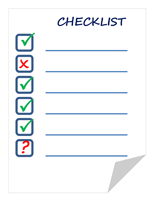 Federal law prohibits employers from discriminating against employees because of their age. Multi-generational hiring has benefits beyond legal ones, though. Understand these benefits as you find the right talent for your company.
Federal law prohibits employers from discriminating against employees because of their age. Multi-generational hiring has benefits beyond legal ones, though. Understand these benefits as you find the right talent for your company.
Appreciate a Range of Skill Sets
Employees in different age groups approach work with different skill sets. Mature employees who have been working in their field for years have learned a variety of tricks and tips. Young employees are typically skilled with new technology. Together, they offer a well-rounded wealth of skills that benefit the company.
Embrace all Aspects of Technology
Young employees grew up with electronics and know how to use social media platforms, webcasting and iPhones. Mature employees may not be as well versed in modern technology. Your diverse workforce can teach each other the benefits of being online and going offline once in awhile, and they have the capability of reaching a diverse audience of customers, including those who are tech savvy and the ones who are not interested in using a computer of any kind.
Share Different Traditions
Your business may have customers who value a personal visit or don’t get online. Mature employees grew up in that generation and understand the needs of those customers. Likewise, today’s generation values being part of social change, and your young employees understand this outlook. Together, your workforce expands their reach and values the traditions of all your customers.
Ensure Company Continuity
Reduce the risk of becoming obsolete, running out of skilled workers or losing your company’s history when you employ members of several generations. Older employees can train younger employees and pass down their years of experience. They also prepare the next generation to keep the company in business and to honor the values on which the business was founded after the older generation retires.
Develop an Effective Mentoring Program
Mature and young employees need each other. They can learn a number of skills from each other and will grow as employees and individuals. By pairing two generations of workers, you start a mentoring program that benefits your workers and company.
Stay Competitive
Every day, your company faces stiff competition for your customers’ attention and dollars. To stay competitive, you need a multi-generational workforce. They combine their experience, talents and skills to reach a wider range of customers, offer unique customer service and use the newest technology. Enjoy a competitive edge with a diverse employee base.














